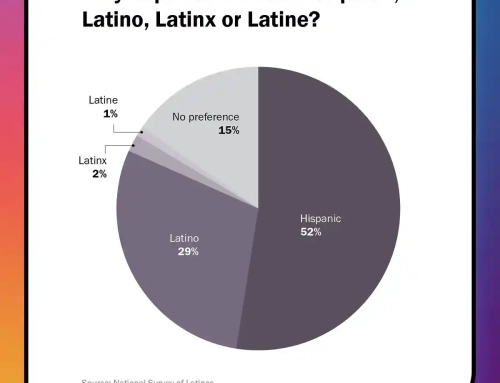Opinion | The Gen Z Myth: How Youth Disillusionment is Reshaping American Politics
The recent election cycle has shattered the long-held belief that Generation Z would serve as the vanguard of progressive change in America. Contrary to expectations, we witnessed a significant shift: young voters, particularly young men, gravitated towards conservative candidates, with many casting their ballots for Donald Trump. This trend not only challenges the narrative of an inherently progressive youth but also raises pressing questions about the future of our democracy.
The Myth of the Progressive Youth Wave
For years, political analysts and activists pinned their hopes on Gen Z to champion progressive causes and rejuvenate the political landscape. Social media platforms buzzed with youthful voices advocating for climate action, social justice, and inclusive policies. However, the 2024 election results tell a different story. Data indicates that while young voters favored Kamala Harris over Donald Trump by a narrow margin of 52% to 46%, this reflects a substantial shift to the right compared to previous elections. (Teen Vogue) Notably, 56% of young men supported Trump, signaling a departure from the anticipated progressive surge.
Fragmented Coalitions and the Rise of Authoritarianism
The anticipated progressive wave, amplified by social media activism, failed to materialize in a manner that could decisively influence the election in favor of Democrats. This shortfall can be attributed to the inability of Democrats and marginalized communities to forge robust coalitions capable of countering the rise of protectionism, authoritarianism, and initiatives like Project 2025. The internal divisions over complex issues, such as the Israeli-Palestinian conflict and Russian aggression in Ukraine, have sown discord among Americans, undermining a unified stance on critical global matters. These fractures have not only weakened domestic solidarity but also strained relationships with international allies, threatening to alter the United States’ standing on the world stage.
The Allure of Strongman Politics
A disconcerting development is the growing fascination within the MAGA movement for authoritarian figures worldwide. This admiration has created significant rifts between the U.S. and its NATO allies, potentially reshaping global alliances. The Republican Party’s shift towards fascist ideologies and Christian nationalism poses a tangible threat to the nation’s democratic foundations. This ideological transformation is alarming, suggesting a departure from traditional democratic values and an embrace of autocratic principles.
Disillusionment Among Millennials and Gen Z
As a Millennial, I recall the optimism of the 1990s—a belief that our generation would witness the full realization of the American Dream. However, a series of traumatic events, from the 9/11 attacks to protracted wars in the Middle East, an economic recession, and the erosion of trust in societal institutions, have shattered that dream. Our faith in education, government, and media has been profoundly shaken. The COVID-19 pandemic further destabilized our sense of security, and the rise of anti-science sentiments during Trump’s presidency has steered the nation towards a path reminiscent of theocratic regimes that reject empirical evidence and reason.
Many Millennials looked to Gen Z as the torchbearers who would rectify our missteps. Yet, Gen Z has encountered similar pitfalls. Entrenched in social media echo chambers, they have become polarized over intricate issues that defy resolution through online discourse alone. A segment of this generation has embraced a form of “wokeness” with rigid ideals, inadvertently providing ammunition for right-wing factions to exploit. Instead of fostering inclusive coalitions, there has been a tendency to adopt an inflexible “my way or the highway” mentality, leading to fragmentation and inadvertently empowering a select few over the divided majority. (Yahoo)
A Call for Unity and Pragmatism
It’s imperative to acknowledge our setbacks and recognize that without strategic change, we risk continued losses. The path forward demands bridge-building and a shift towards centrist positions on various ideological fronts. We must understand that the objective isn’t absolute victory but the ongoing pursuit of progress through compromise and incremental achievements. Celebrating small wins and approaching defeats with dignity can pave the way for collective advancement.
The resilience of our nation hinges on our capacity for collective action—undertaken with quiet determination and peaceful resolve. By reigniting the foundational principle of “E Pluribus Unum”—out of many, one—we can counteract the divisive forces threatening our democracy. This endeavor requires transcending ideological rigidities and embracing a shared commitment to the common good.
The recent electoral outcomes serve as a stark reminder that generational labels don’t guarantee political alignment. Both Millennials and Gen Z face the challenge of navigating a complex socio-political landscape. Our collective responsibility is to foster unity, engage in meaningful dialogue, and work collaboratively towards a more inclusive and resilient democracy.
By: Rev. Dr. Harold Marrero
Chief Operating Officer
We encourage you to share this information with friends, fellow teachers, and allies and join us in bringing awareness to our efforts. Your support is essential for our ongoing work to create safe spaces for all students, regardless of ethnicity, gender, sexual orientation, or expression. Please consider donating to Safe Schools so that we can continue advocating for inclusivity and diversity within the education system.







